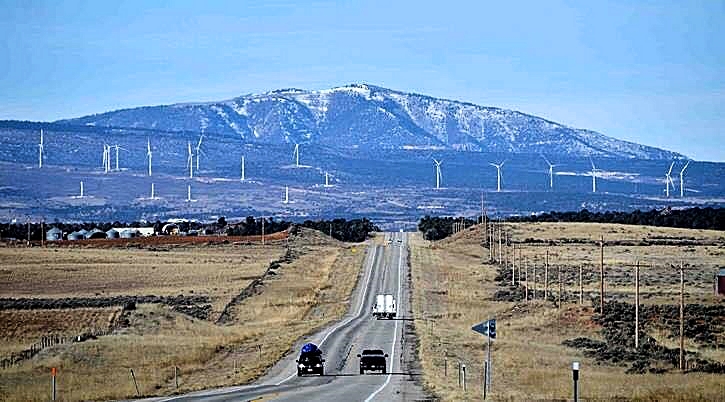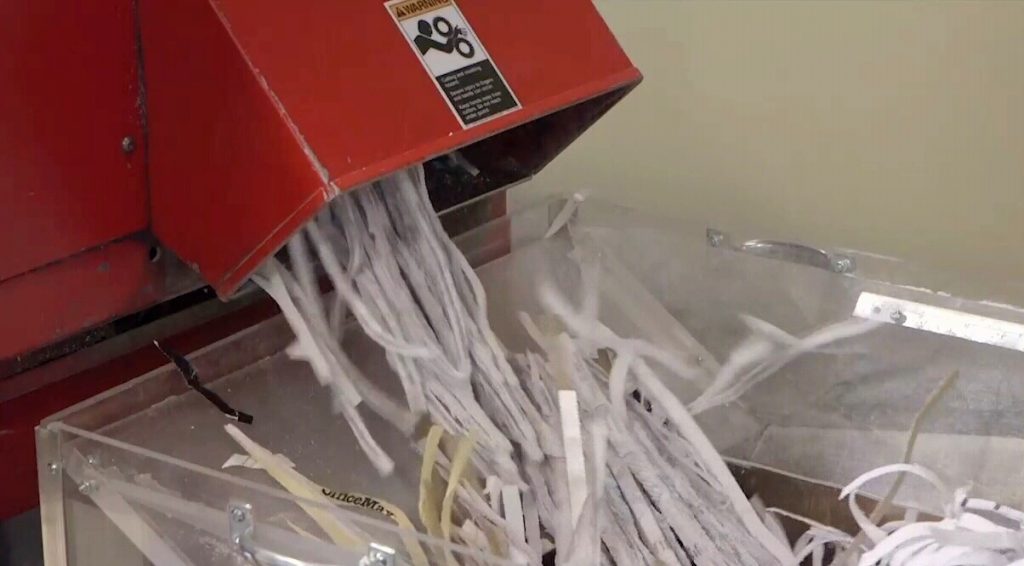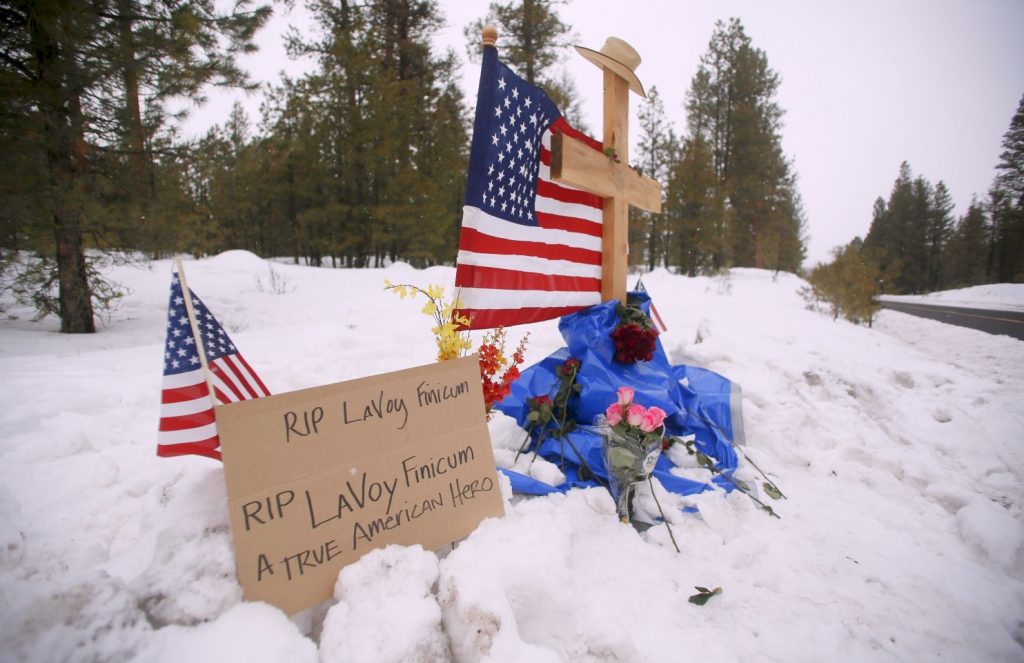“Monticello, a largely agricultural and ranching town of about 2,000 located in San Juan County, now finds its wind farm in the midst of a legal battle which may threaten the future of the giant turbines.”
Free Range Report
Those familiar with the beautiful view of the Abajo Mountains rising up to the west of Monticello, Utah, have witnessed a startling change in recent years. A large wind farm, reaching up the mountainside from the edge of town, now clutters what was once a breathtaking natural vista.
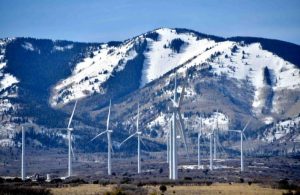
Wind farms have been springing up across the country in response to various state ‘Clean Power’ plans, most of which derive from EPA standards mandating a higher percentage of electricity produced by ‘renewable’ energy sources. Monticello, a largely agricultural and ranching town of about 2,000 located in San Juan County, now finds its wind farm in the midst of a legal battle which may threaten the future of the giant turbines.
A decision handed down on September 9 by Lyle Anderson of Utah’s 7th District Court, brings to light what appears to be a tangle of favoritism, administrative manipulation, and conflicts of interest related to the actions of the San Juan County Commission.
The wind project started as a City of Monticello project around 2004. The project was funded by several USDA Rural Business Enterprise Grants (RBEG)that were only available to government entities like the City of Monticello. Wasatch Wind, LLC was hired as a wind farm consultant for the city. Latigo Wind Park, LLC was created in 2011 and shortly there after this city economic development project became a Wasatch Wind and Latigo Wind project.
The project consisted of a 27-turbine wind farm and was bought out by Salt Lake City-based Sustainable Power Group (sPower)/ New York hedge fund (Fir Tree). The wind farm was completed late in 2015 and went online in March of this year.
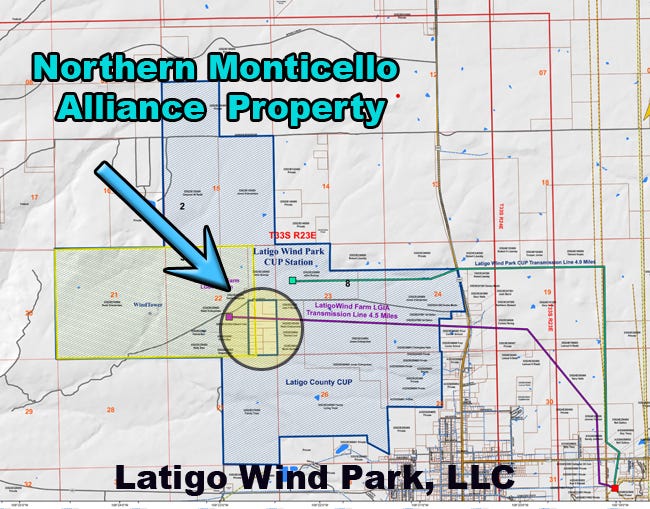
In 2015, Northern Monticello Alliance (NMA), a group of land owners holding deeds to the land upon which the wind farm now stands, and Summit Wind Power (SWP), another company which believed its own wind farm efforts had been hindered by San Juan County administrators, joined forces in an action against the San Juan County Commission.
Controversy dogged the project from the beginning, and as early as 2012, San Juan County was receiving complaints about non-compliance and problems with the conditional use permit issued to sPower. In August of 2015 the San Juan County Commissioners, Bruce Adams, Phil Lyman and Rebecca Benally voted unanimously to hold a ‘revocation hearing’ to review the complaints.
The complaint cited mishandling by county officials of permitting processes for construction of the wind farm, with possible cronyism and conflicts of interest on the part of Commissioner Bruce Adams.
The allegations included misconduct, favoritism, and issues with light and sound mitigation, as well as possible county manipulation of conditional use and building permits granted to Latigo/sPower.
The misconduct allegations cited potential fraud in permits issued by Greg Adams of the San Juan County Planning Commission, whose close relatives include County Commissioner Bruce Adams and Rob Adams, the Director of Operations for sPower.
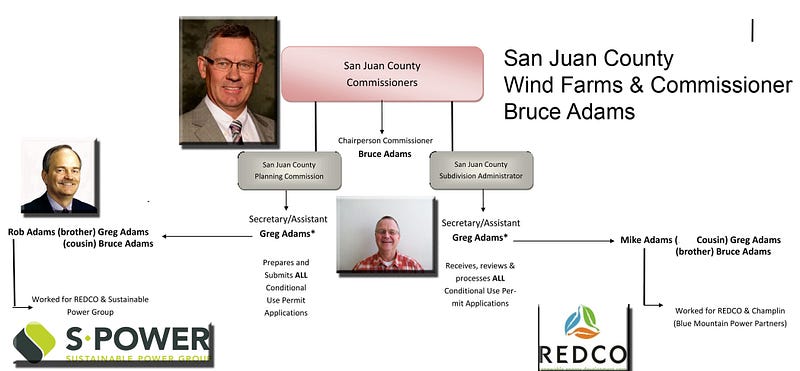
The first complaint filed by NMA addressed the following issues regarding the permits;
(1) The conditional use permit (CUP) had expired.
(2) The amended conditions of the CUP by the San Juan Planning and Zoning had not been met.
(3) Greg Adams had violated county policy when he issued the CUP.
Summit Wind Power’s (SWP) complaint cited the actions of Greg Adams (cousin of Bruce Adams) in many of the same issues addressed by NMA. SWP also claimed that Commissioner Bruce Adams manipulated Summit Wind application using unfair administrative practices designed to hinder their wind farm project.
Evidence produced by Summit Wind purported to show that Adams had a personal interest in Latigo as well as sPower. Their complaint was also filed with the Utah Attorney General’s Office.
In response to complaints of cronyism and misconduct from NMA and SWP, on November 23, 2015, the San Juan County Board of Commissioners issued a written decision to them stating their intent to reverse their decision ‘not to revoke’ Latigo/sPower’s conditional use permit.
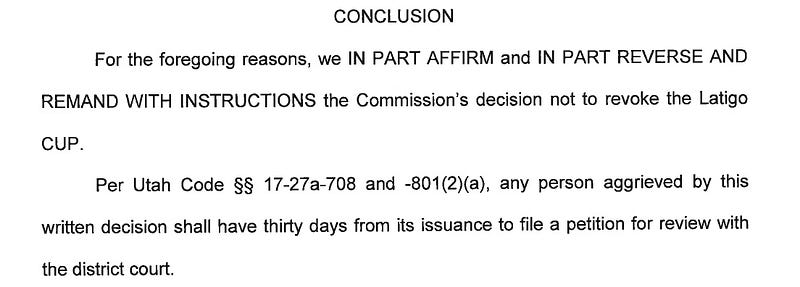
Attorneys representing sPower responded quickly, and on December 3 sent a letter to the county claiming that this order would cause them to “suffer “significant damages” if the decision were not reversed” and they gave the county a deadline of four days to make the change. In what appeared to be a less-than-veiled threat, sPower stated that the damages would be in “excess of $100 million.”
Subsequently, Commissioners Adams and Benally caved to the threats and reversed their original conclusions of November 23. Commissioner Phil Lyman declined to change the original findings because it was unlawful to do so. Despite Lyman’s objections Commissioners Adams and Benally changed the order to favor sPower, and on December 8 issued the following reversal:
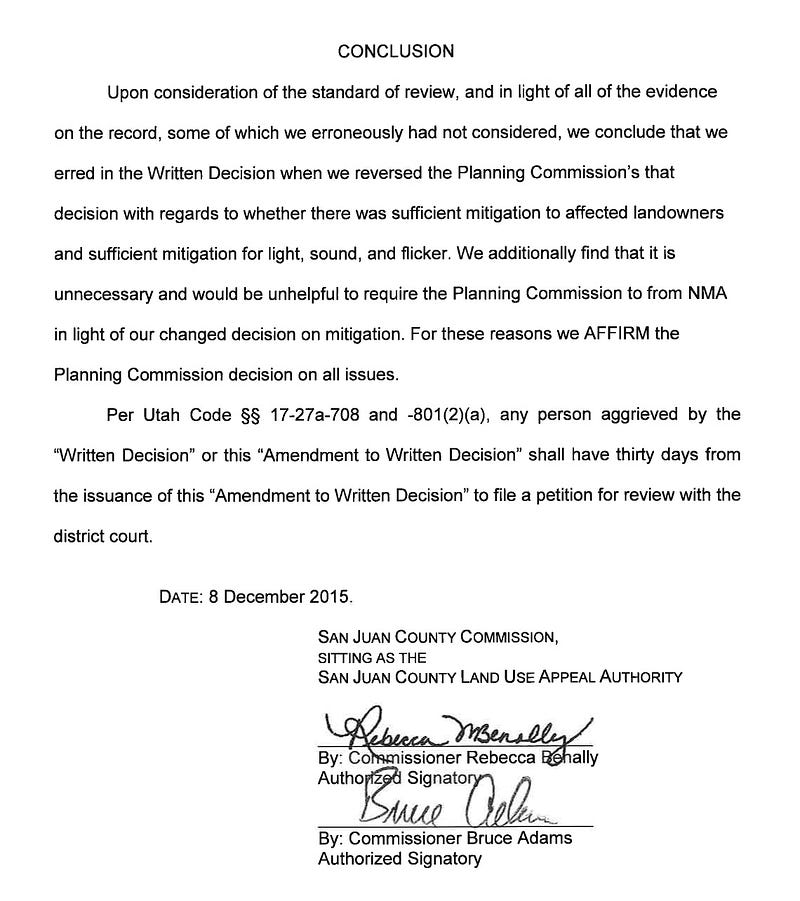
In response the unlawful action by Commissioners Adams and Benally, NMA and SWP chose to take the matter to a higher court, and so filed a complaint with the Seventh Judicial District Court in San Juan County.
On August 29, 2016, Utah’s 7th District Court Judge, Lyle Anderson, heard the appellants’ complaints regarding San Juan County’s actions. The August 29th hearing brought three motions before the court:

Although Judge Anderson had 60 days to make a determination in the case, just nine days later, he issued a Memorandum of Decision which favored Northern Monticello Alliance on all issues.
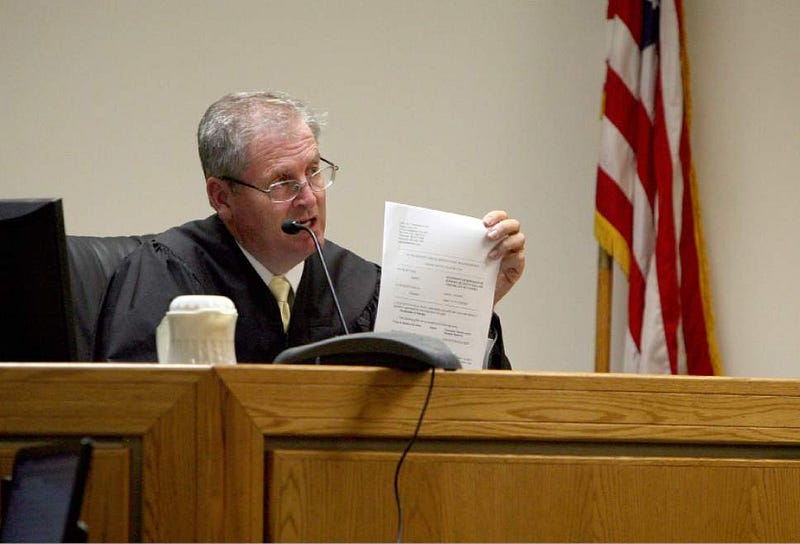
Judge Anderson stated in the memorandum, “Accordingly, the court concludes that the County’s decision to reconsider its earlier order was illegal because it violated NMA’s due process rights.”
One source close to the case stated that Judge Anderson’s decision sends the dispute back to the San Juan County Zoning Board, where the only legal option is to pull sPower’s conditional use permits.
Another source stated that the taxpayers of San Juan County will be stuck with paying all the legal fees for the county, sPower, and NMA which at present is estimated at around $250,000. According to the same source, the county’s insurance will not cover these costs.
There also exists the potential that sPower, which is at risk of losing its permits for the wind farm, will take further action against San Juan County.
Failure on the parts of Commissioner Bruce Adams and county employee Greg Adams to follow the county’s own regulations and ordinances, as well as commissioners’ reversal of their plan to revoke disputed permits, have put the wind farm in jeopardy and the taxpayers of San Juan County on the hook for hundreds of thousands in legal costs.
Free Range Report Admin.
